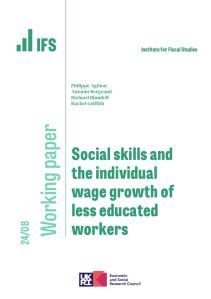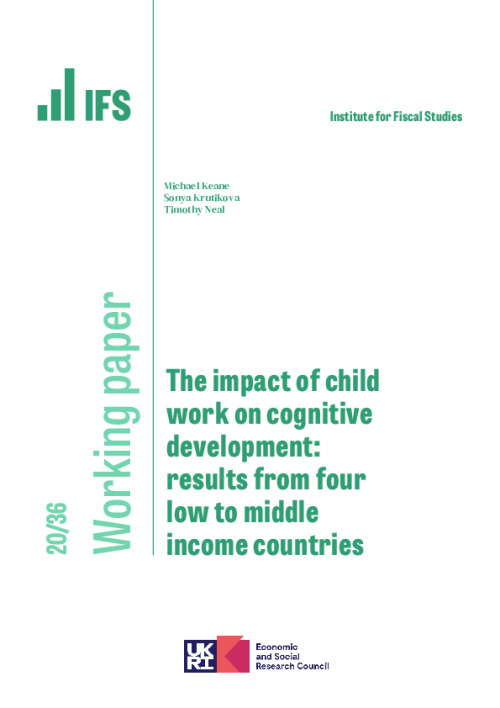We study the impact of child work on cognitive development in four Low- and Middle-Income Countries. We advance the literature by using cognitive test scores collected regardless of school attendance. We also address a key gap in the literature by controlling for children’s complete time allocation budget. This allows us to estimate effects of different types of work, like chores and market/farm work, relative to specific alternative time-uses, like school or study or play/leisure. Our results show child work is more detrimental to child development to the extent that it crowds out school/study time rather than leisure. We also show the adverse effect of time spent on domestic chores is similar to time spent on market and farm work, provided they both crowd out school/study time. Thus, policies to enhance child development should target a shift from all forms of work toward educational activities.
Authors

Deputy Research Director
Sonya Krutikova is an Associate Professor of Economics at Manchester University and IFS Deputy Research Director.

Research Associate John Hopkins Carey Business School
Michael Keane is a Wm. Polk Carey Distinguished Professor at the John Hopkins Carey Business School.

Timothy Neal
Working Paper details
- DOI
- 10.1920/wp.ifs.2020.3620
- Publisher
- The IFS
Suggested citation
M, Keane and S, Krutikova and T, Neal. (2020). The impact of child work on cognitive development: results from four low to middle income countries. London: The IFS. Available at: https://ifs.org.uk/publications/impact-child-work-cognitive-development-results-four-low-middle-income-countries-0 (accessed: 24 April 2024).
Related documents
Download supplementary appendix
PDF | 375.12 KB
More from IFS
Understand this issue

Behind the numbers: reassessing investment in skills and training
12 October 2023

Sure Start achieved its aims, then we threw it away
15 April 2024

If you can’t see it, you can’t be it: role models influence female junior doctors’ choice of medical specialty
24 April 2024
Policy analysis

The short- and medium-term impacts of Sure Start on educational outcomes
9 April 2024

Sure Start greatly improved disadvantaged children’s GCSE results
9 April 2024

What you need to know about the new childcare entitlements
28 March 2024
Academic research

Social skills and the individual wage growth of less educated workers
27 March 2024

Willingness to pay for improved public education and public healthcare systems: the role of income mobility prospects
14 March 2024

Labour market inequality and the changing life cycle profile of male and female wages
15 April 2024
